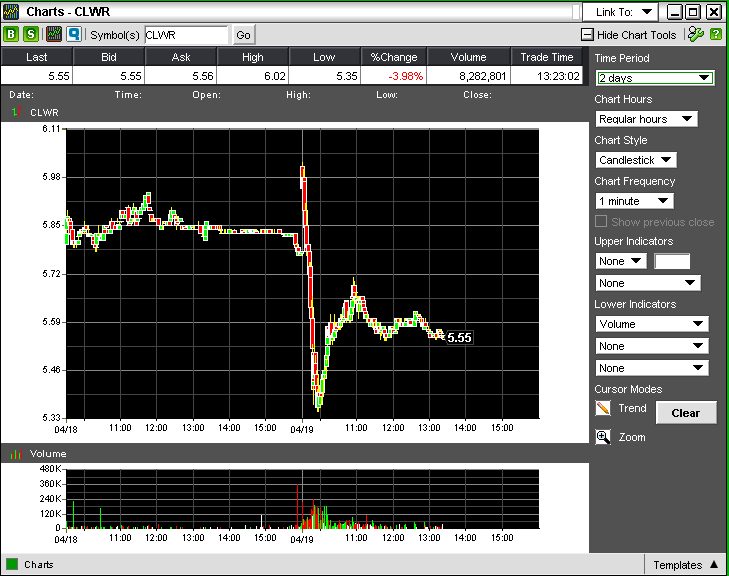Sprint, Clearwire forge $1 billion network deal; Serious questions remain

Sprint and Clearwire have completed a long-term wholesale 4G agreement, but the deal does little to solidify the network strategy or funding issues at the two companies, respectively.
In a deal announced Tuesday, Sprint and Clearwire cleared up a spat that has been lingering for months. Sprint said it has agreed to pay Clearwire a minimum of $1 billion in 2011 and 2012 for access to its 4G network. These payments include $300 million in 2011, $550 million in 2012 and $175 million upfront.
Meanwhile, Sprint and Clearwire agreed on a new wholesale pricing scheme for 4G devices such as the HTC Evo, which are dual mode. Sprint gets usage based pricing and volume discounts. Clearwire gets minimum payments per 4G device.
The partnership gives Clearwire some ammo to raise more money. For Sprint, the new deal gives it more favorable terms and buys it time to figure out its LTE 4G strategy.
The reality set in on the Clearwire announcement shortly after it was announced. Clearwire gets some cash, but not enough to alleviate its capital crunch.
That chart doesn't exactly highlight enthusiasm. Piper Jaffray analyst Christopher Larsen explains:
While Clearwire will receive an upfront payment of $175M for wholesale services, there were no reports of Sprint committing to additional funding for Clearwire network expansion. However, with commitments in hand, Clearwire may be able to raise additional debt financing to fund expansion. We believe if Clearwire felt it could raise additional funding with these commitments, the company may have agreed to minimal build-outs requirements as part of the deal.
We think this improves the Sprint/Clearwire relationship, but still leaves Sprint's long-term 4G strategy in the air. If Clearwire continues to expand slowly, Sprint will fall behind the other national carriers and could be forced to build its own network or acquire another carrier (Clearwire or LightSquared) and ramp that company's build. Furthermore, both Sprint and Clearwire will have to choose between continuing with WiMAX or converting to the more widespread LTE, which would result in incremental costs.
Christopher King, an analyst at Stifel Nicolaus, said he doubts Clearwire will be able to keep up with its LTE competitors. "While this provides Clearwire with a much needed capital infusion, we point at that the company will still need to raise significantly more capital to fully fund its business plan and to be competitive with the likes of AT&T and Verizon who are aggressively rolling out LTE this year," said King.
Related:
